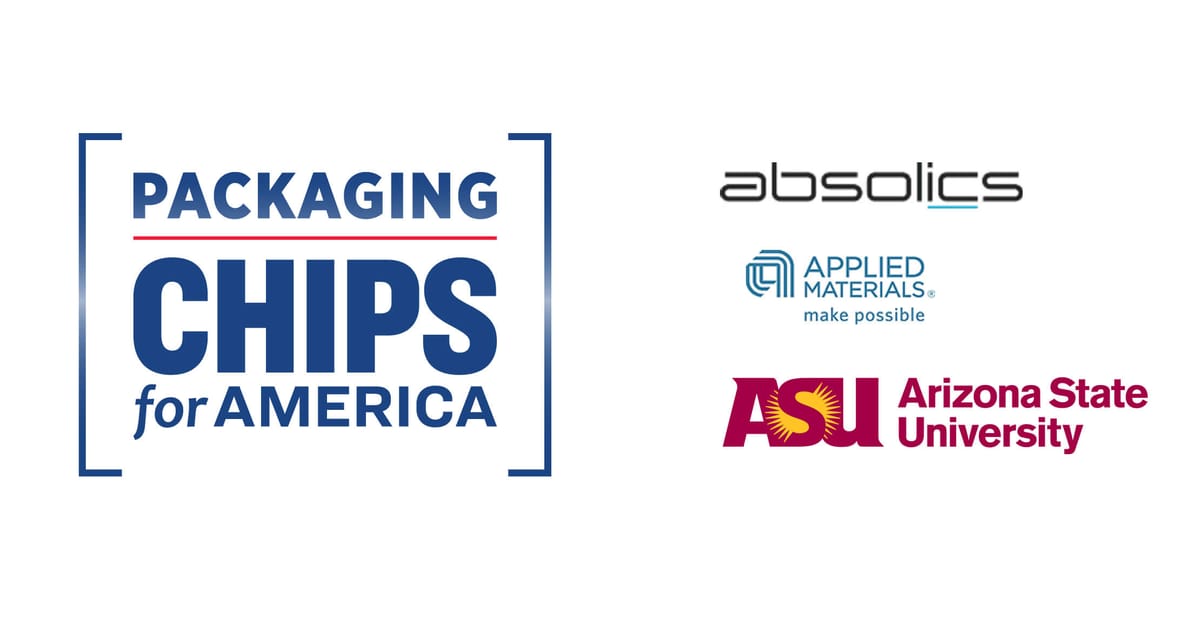
The U.S. Department of Commerce is preparing to invest up to $300 million into advanced semiconductor packaging research projects across Georgia, California, and Arizona. This move aims to secure America's leadership in cutting-edge technologies crucial to the semiconductor industry.
Why it Matters: The semiconductor industry is the backbone of technologies ranging from smartphones to AI systems. Advanced packaging—essential for assembling multiple chips, managing power, and dissipating heat—enables these technologies to function efficiently and is critical for AI and next-gen wireless communications. The U.S. currently lacks domestic infrastructure to produce these high-tech substrates. This investment aims to change that.
Who's getting the money:
The expected recipients of these federal funds are Absolics Inc. in Georgia, Applied Materials Inc. in California, and Arizona State University (ASU) in Arizona. Each project may receive up to $100 million, with additional private sector investments bringing the total to over $470 million.
- Absolics Inc., Georgia: Absolics will focus on glass core substrate panel manufacturing, seeking to leapfrog existing technology with help from over 30 partners, including academic and non-profit institutions. A significant part of Absolics' effort will be to build a "glass-core packaging ecosystem," paving the way for high-volume manufacturing in the future.
- Applied Materials, California: In California, Applied Materials is advancing silicon-core substrate technology. This technology could revolutionize semiconductor packaging and catalyze an ecosystem for building high-performance computing systems for AI right here in the U.S.
- Arizona State University, Arizona: ASU will develop fan-out-wafer-level-processing technology, aiming to achieve capabilities not yet commercialized in the U.S. ASU's approach also includes building an interconnect foundry to link semiconductor fabs to workforce development initiatives, supporting a more robust domestic packaging industry.
The Bigger Picture
These investments are part of the Biden Administration's CHIPS for America initiative, designed to invigorate U.S. semiconductor manufacturing. As U.S. Secretary of Commerce Gina Raimondo stated, "The key to the United States' long-term competitiveness hinges on our ability to out-innovate and out-build the rest of the world." By focusing on R&D in advanced packaging, the Department of Commerce aims to address the growing demands in AI data centers and mobile electronics, both of which require next-level packaging solutions.
Not Just Chips—It's Jobs and Training
In addition to technological advancements, these projects will have a strong focus on workforce development. Absolics, Applied Materials, and ASU have outlined plans to collaborate with technical colleges, Historically Black Colleges and Universities (HBCUs), and Veterans programs to build a talent pipeline for the semiconductor industry. The CHIPS initiative doesn’t just aim to build tech; it aims to build skills and opportunities for American workers.
What's Next?
The CHIPS National Advanced Packaging Manufacturing Program has committed approximately $3 billion over the next decade to establish a self-sustaining, high-volume advanced packaging industry in the U.S. These investments will support innovation and ensure that America can not only manufacture advanced semiconductors but also package them within its borders—a vital component of long-term competitiveness.
The bottom line: This investment addresses a critical vulnerability in America's semiconductor supply chain while positioning the U.S. to compete in next-generation computing technologies.

